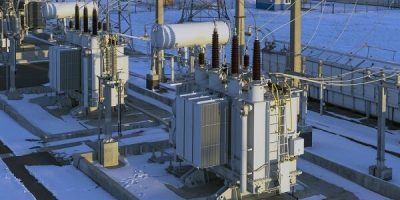Switchgear and Transformer
Troubleshooting
23 – 27 February 2026
Sandton Center Johannesburg South Africa

Register Now! Limited Seats Available!
R19,999.00 Per Delegate
Course overview:
Switchgear and transformers are critical components in any electrical power system. Their reliability directly impacts power stability, operational safety, and equipment longevity in industrial, commercial, and utility environments. Failures in these systems can lead to costly outages, equipment damage, and safety risks.
This intensive course is designed to provide participants with in-depth technical knowledge and hands-on troubleshooting skills for detecting, diagnosing, and preventing faults in transformers and switchgear. It covers essential theories, failure mechanisms, real-world diagnostic techniques, preventive maintenance strategies, and practical case studies.
Participants will gain a solid understanding of how to identify faults early, perform effective diagnostics, and implement preventive actions to minimize downtime and improve system reliability. The course balances theory with practical insights to ensure that attendees are fully equipped to handle real-world maintenance and troubleshooting challenges.
Course Objectives:
By the end of this course, participants will be able to:
1. Understand the fundamental design, function, and components of switchgear and transformers.
2. Identify common types of failures and their root causes in both switchgear and transformer systems.
3. Perform systematic troubleshooting using both traditional and advanced diagnostic tools.
4. Conduct routine and predictive maintenance to ensure operational efficiency and safety.
5. Interpret test results from key diagnostics such as insulation resistance, dissolved gas analysis (DGA), circuit breaker timing, and contact resistance.
6. Apply safety protocols during operation, testing, and fault diagnosis.
7. Analyze and respond to real-world fault scenarios with confidence using structured fault analysis techniques.
8. Establish and implement preventive maintenance schedules to extend equipment life and minimize unplanned downtime.
Who Should Attend:
• Electrical Engineers and Technicians
• Maintenance Engineers and Supervisors
• Substation Technicians and Operators
• Utility Field Service Personnel
• Plant Electricians
• Power System Protection Engineers
• Asset Management and Reliability Engineers
• Technical Staff in Mining, Oil & Gas, Water Utilities, and Manufacturing Plants
• QA/QC Engineers involved in electrical inspections
• Facility Engineers managing critical power systems
Course Outline:
Module 1: Introduction to Power Systems
• Basics of electrical power systems (generation, transmission, distribution)
• Role of transformers and switchgear in power systems
Module 2: Transformer Fundamentals
• Transformer types and applications (power, distribution, instrument)
• Transformer construction: core, winding, tank, tap changer
• Transformer ratings and nameplate interpretation
Module 3: Switchgear Fundamentals
• Types of switchgear (HV, MV, LV)
• Components of switchgear: circuit breakers, isolators, relays, busbars
• Protection and control functions
DAY 2: Transformer Operation, Faults & Diagnostics
Module 4: Transformer Operation and Maintenance
• Oil-filled vs dry-type transformers
• Cooling methods (ONAN, ONAF, OFAF, etc.)
• Daily checks and routine maintenance practices
Module 5: Transformer Faults and Symptoms
• Winding failures
• Insulation breakdown
• Tap changer issues
• Core faults and oil leakage
Module 6: Transformer Troubleshooting Techniques
• Visual inspections and thermography
• Insulation resistance (IR) testing
• Turns ratio and winding resistance tests
• Dissolved Gas Analysis (DGA) interpretation
• Partial discharge testing
DAY 3: Switchgear Operation, Faults & Diagnostics
Module 7: Switchgear Operation and Safety
• Operating mechanisms (manual, motorized, solenoid)
• Interlocks and safety protocols
• Arc flash hazards and PPE
Module 8: Common Switchgear Faults
• Breaker tripping issues
• Contact wear and pitting
• Interlock malfunction
• Busbar overheating
• Relay and control wiring issues
Module 9: Switchgear Troubleshooting Techniques
• Visual inspections and mechanical checks
• Primary and secondary injection testing
• Contact resistance measurement
• Insulation and hi-pot testing
• Relay testing and diagnostics
DAY 4: Advanced Troubleshooting and Case Studies
Module 10: Diagnostic Tools and Interpretation
• Infrared thermography
• Circuit breaker analyzers
• SF6 gas testing (for GIS)
• Power quality analyzers
Module 11: Root Cause Analysis (RCA) Techniques
• Step-by-step problem solving
• Fault tree analysis (FTA)
• Failure modes and effects analysis (FMEA)
Module 12: Real-World Case Studies
• Transformer failure investigation reports
• Switchgear fault scenarios and lessons learned
• Discussion of blackout incidents due to equipment failure
DAY 5: Practical Demonstrations and Preventive Strategies
Module 14: Preventive and Predictive Maintenance
• Condition-based maintenance programs
• Scheduling and record keeping
• Digital monitoring and IoT applications
Module 15: Review, Assessment, and Certification
• Course review and Q&A
• Practical and written assessment
• Issuance of certificates
End of the workshop
IN HOUSE AND ONLINE TRAINING

While both In-House and Online training can present with cost-effectiveness and time-efficacy, there are some very specific differences between in-house courses and those based online.
The demand for additional courses by individuals or groups of people is increasing. Still, it depends entirely on the preferences of a person what type of training he or she wants to receive. Online courses and in-house training carry some similarities but they are considered to exhibit some very pivotal differences too. Despite that, both types of learning can be really beneficial for attendees.
For Registration and other Training arrangements,
contact us on the detail below.
SOUTH AFRICA : +27 11 057 6001
TANZANIA Cell: +255 769 688 544
WhatsApp +27 79 574 0389
info@bmktraining.co.za / www.bmktraining.com
